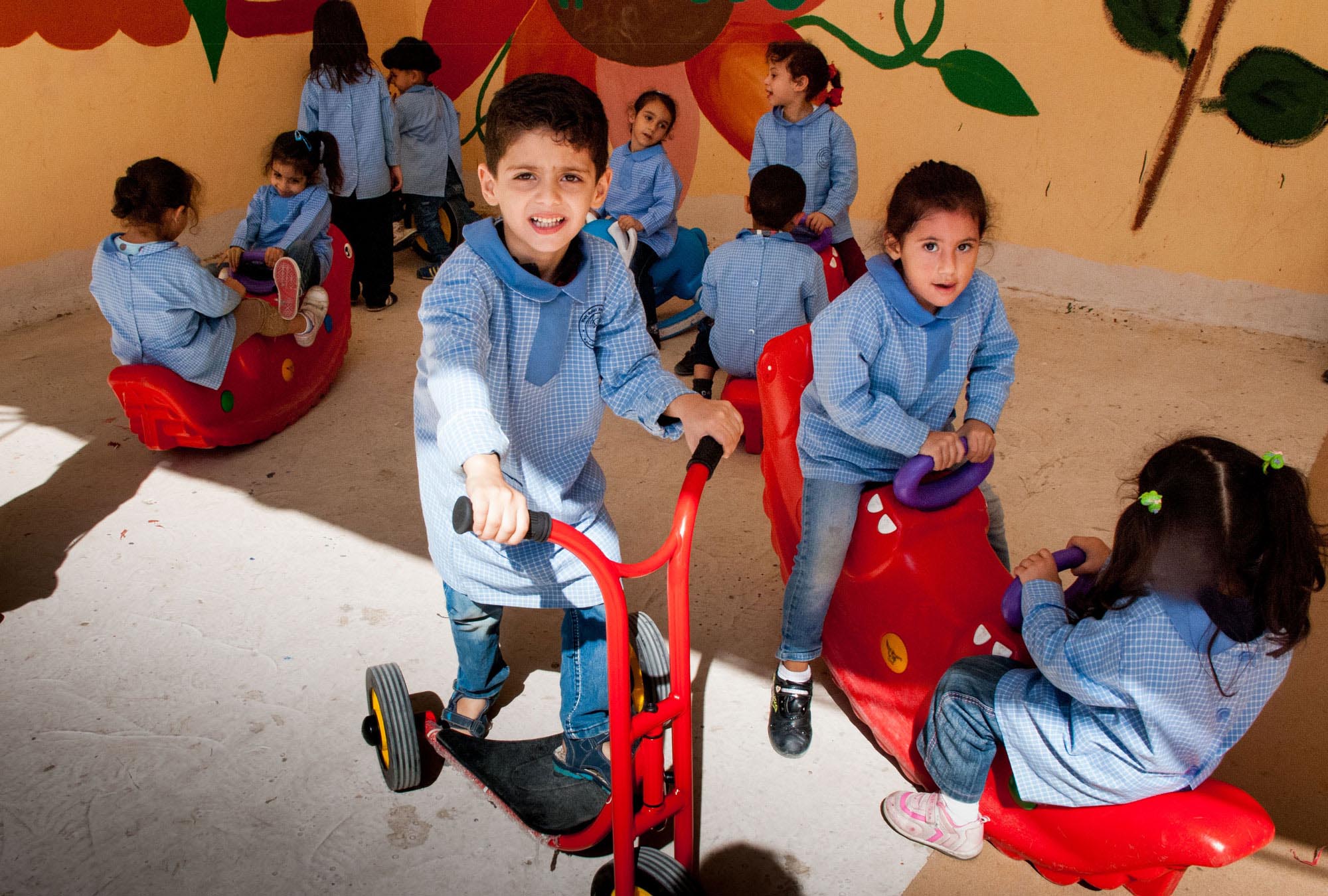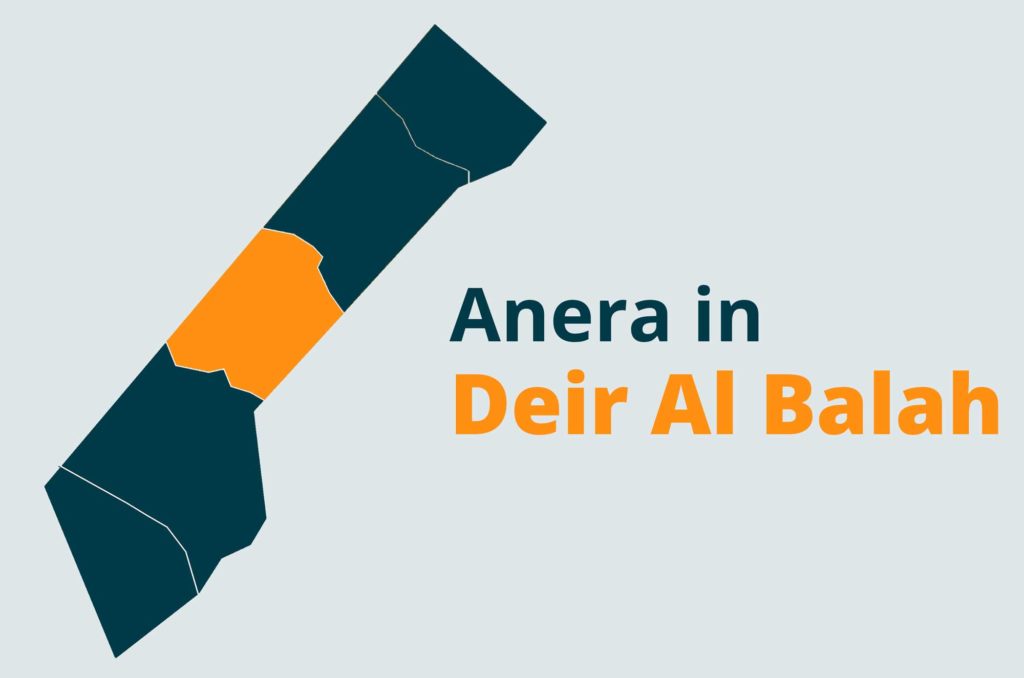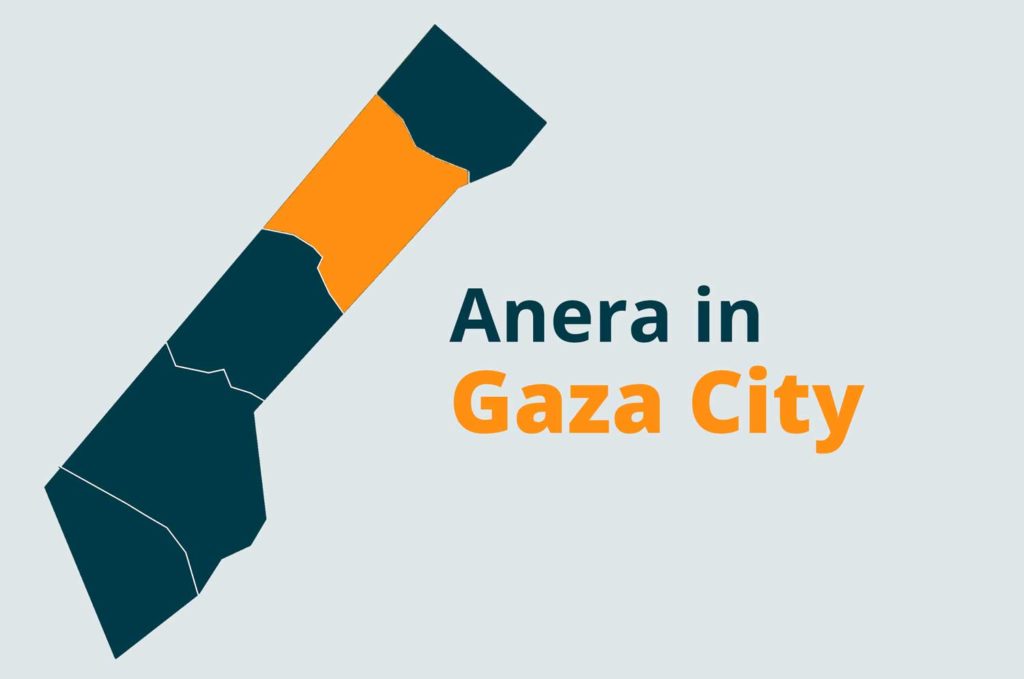Feb, 2014
Refugees from Syria who have found shelter in Lebanon often face difficult and precarious living conditions. It is especially hard for young children, who already have been traumatized by the war back home.
“Including children from Syria in our kindergarten is a key to providing some sense of normalcy and opportunities to socialize and learn,” says Jamila Chehadeh, head of the Shatila Center of the National Institute of Social Care and Vocational Training (NISCVT), one of Anera’s community-based partners in the Palestinian refugee camps of Lebanon.
Young Walid fled Syria with his parents and three elder sisters after fighting erupted in their neighborhood of Yarmouk refugee camp on the outskirts of Damascus. In December 2012, the family took refuge in Shatila camp in Beirut’s suburbs. For the past year, they have been living in a 12 square meter room, with a single window providing some dim light. For three and a half year old Walid, the chance to go to a preschool is life-changing. Every morning, he gets to laugh and play with new friends and temporarily escape his cramped and depressing surroundings.
The NISCVT preschool in Shatila camp provides children like Walid with arithmetic, English, and Arabic lessons. By the end of the three years, they are ready to enter UNRWA’s primary schools.
Learning English is essential since classes in Lebanon are taught in English or French, in contrast to Syrian schools where Arabic is the language of instruction.
Refugee Camp Preschools in Poor Condition
Focusing on early childhood education is a key element of a child’s development. Experts agree early childhood development is the most important investment a society can make in its future. Refugee children are no exception.
Yet, preschool education in Lebanon’s Palestinian camps is seriously under-funded. More than half of the Palestinian children in Lebanon have lacked access to preschool. UNRWA, which is responsible for administering the camps, does not provide preschool education. Kindergartens rely on the limited support of local and international non-government organizations. More than half of the 92 preschools operating in the camps are in poor conditions. Nearly 80% need renovation and refurbishment of classrooms or playgrounds. More than 85% of the facilities lack proper equipment for a child-friendly environment.
Today, with the mass influx of refugees from Syria, including some 60,000 Palestinians, conditions for early childhood education are even worse. Since NISCVT opened its preschool to refugee children from Syria, the size of a class grew from 25 to 33 children. The school now hosts 140 children from 3 to 5 years old.
“Unfortunately, we cannot enroll every children,” explains Jamila. “We give the priority to those with most urgent needs. For example, we enroll children with speech disabilities as early as possible in order to help them overcome their disorder and enable them to pursue a regular academic path.” Jamila says the school sadly cannot respond to the ever-growing demand without help.
This year, thanks to a grant from Anera, NISCVT was able to purchase a number of educational games and materials. Walid’s class enjoys a new toy cooker. And, they love playing with their new tricycles and scooters during recess.
Anera has spearheaded a comprehensive early childhood development program in the West Bank and Gaza and is hoping to bring some of that expertise to bear its work in Lebanon.




